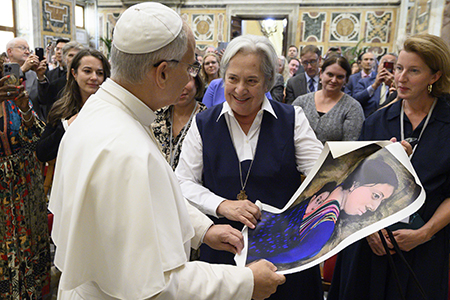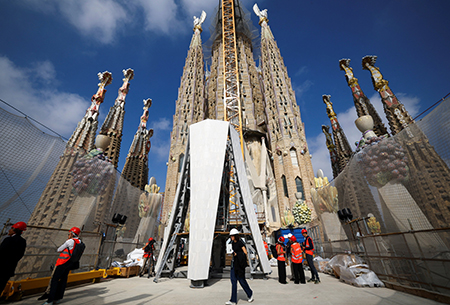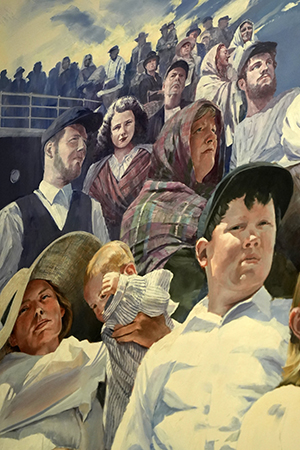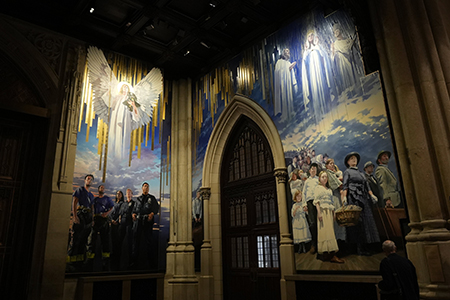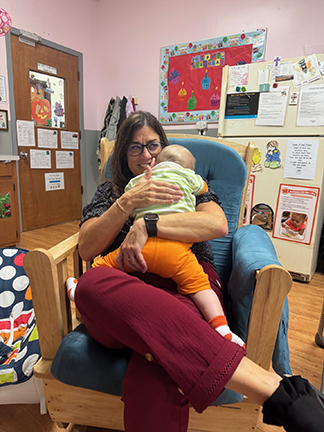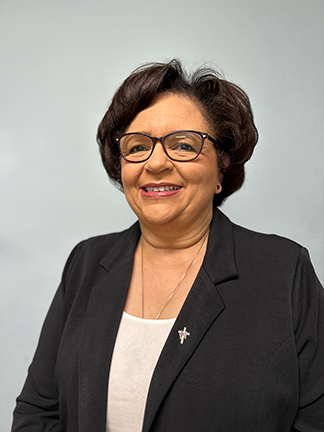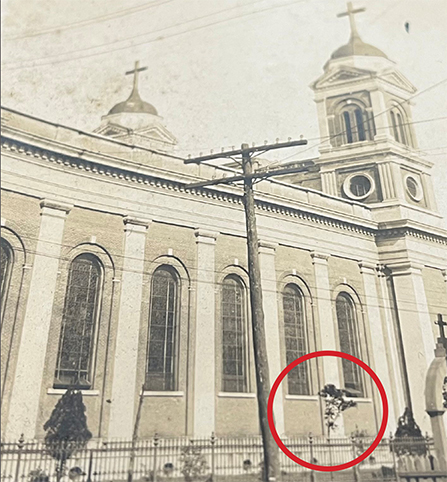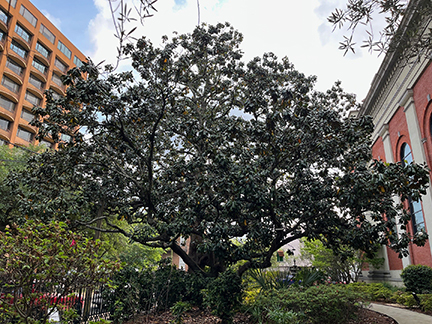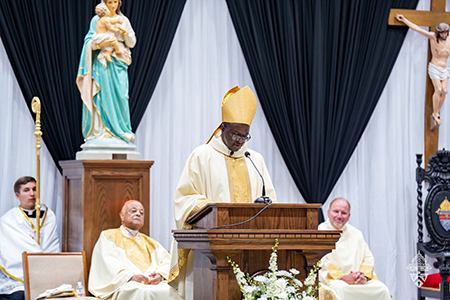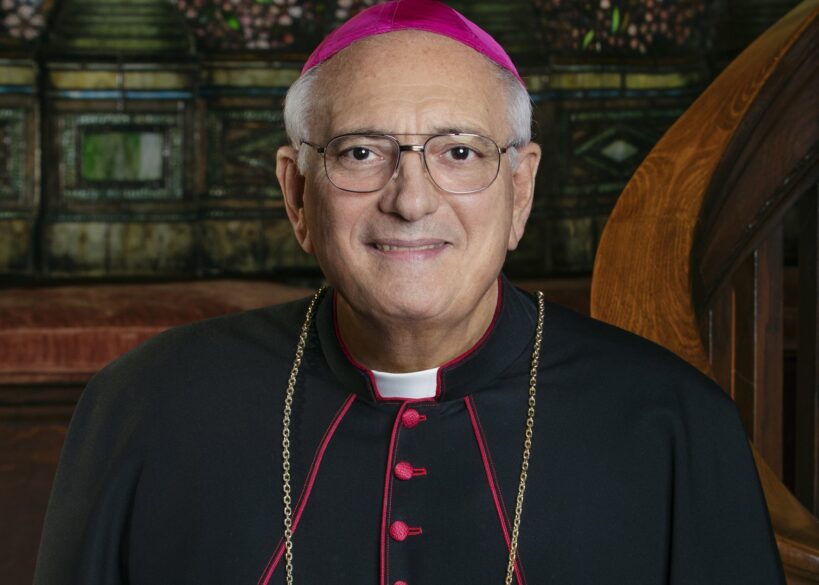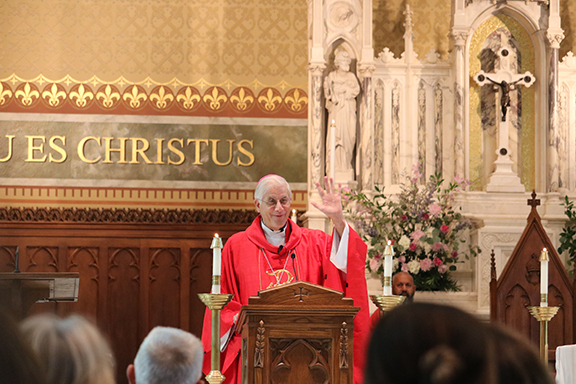San Luis Bertrand, OP, fiesta: 9 de octubre
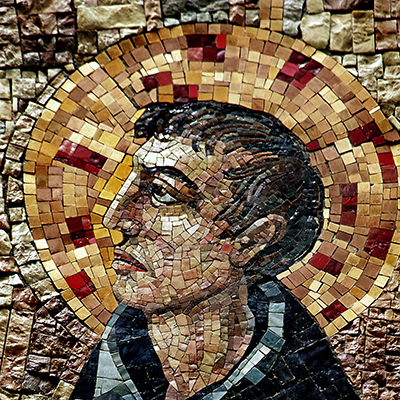
Luis se convirtió en dominico a los 18 años y fue ordenado sacerdote en 1547. Fue maestro de novicios en su España natal durante 30 años y se ganó una reputación de santidad al cuidar a las víctimas de la peste en Valencia en 1557. En 1562, se fue como misionero al Caribe, trabajando en Colombia y en las islas de Sotavento, las Vírgenes y de Sotavento durante seis años. Su celo apostólico, ayudado por el don de lenguas y otros acontecimientos milagrosos, dio como resultado 15 000 conversiones entre las poblaciones indígenas. Después de regresar a España, formó a predicadores para las misiones, diciendo que la única preparación eficaz era la oración humilde y ferviente. Fue canonizado en 1671 y es el principal santo patrón de Colombia. San Luis Bertrán es el patrón de Buñol, Nueva Granada y Colombia.
Traducción realizada con la versión gratuita del traductor DeepL.com
San Martín de Porres, día de fiesta: 3 de noviembre
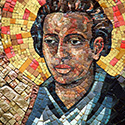
Springfield IL
Este hijo ilegítimo de un esclavo panameño liberado y una caballero español se convirtió en un héroe para el pueblo de Lima, Perú, su lugar de nacimiento, por su compasivo cuidado de los enfermos y los pobres.
Aprendiz a los 12 años de un barbero-cirujano, Martín también aprendió medicina herbal de su madre. Después de trabajar durante varios años en un monasterio dominico como miembro de la Tercera Orden, profesó como hermano lego en 1603. Fundó un orfanato y un hospital para expósitos, atendió a esclavos africanos, practicó grandes penitencias y experimentó dones místicos. Martín fue llevado a la tumba por prelados y nobles, y todos los peruanos lo aclamaron como su querido santo. Es el patrón de los peluqueros y de la justicia interracial.
San Juan Diego Cuāuhtlahtoātzin, festividad: 9 de diciembre
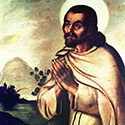
Bautizado a los 50 años, este indígena se dirigía a misa el 9 de diciembre de 1531 cuando María se le apareció en el cerro del Tepeyac, cerca de la Ciudad de México. Ella le pidió que solicitara al obispo que se construyera un santuario en ese lugar. Pero el obispo pidió una señal.
El 12 de diciembre, Juan regresó al Tepeyac; María le dijo que recogiera las flores que florecían en la cima del cerro y las pusiera en su manto para llevárselas al obispo. Cuando Juan abrió el manto, las flores se cayeron y la imagen de Nuestra Señora de Guadalupe adornaba su prenda. Esta imagen milagrosa se conserva en la famosa basílica de la Ciudad de México. Juan vivió el resto de sus días como ermitaño cerca de la primera capilla construida allí; fue canonizado en 2002.
San Juan Diego es el patrón de los pueblos indígenas.
San Toribio de Mogrovejo, día de fiesta: 23 de marzo
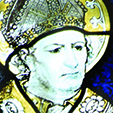
Toribio, nacido en España, enseñó derecho en Salamanca hasta 1574, cuando fue nombrado inquisidor de Granada. En 1580, aunque aún no era sacerdote, fue nombrado arzobispo de Lima, Perú, y recibió la ordenación episcopal en Sevilla.
Tras llegar a Lima en 1581, sus 25 años de servicio misionero incluyeron sínodos diocesanos y provinciales, visitas por la vasta diócesis, reformas del clero y catecismos en lenguas indígenas. También introdujo las órdenes religiosas europeas en Perú, abrió el primer seminario en el Nuevo Mundo y animó a los indígenas a convertirse en sacerdotes.
San Toribio de Mogrovejo es el patrón de los obispos latinoamericanos, los derechos de los indígenas y Lima, Perú.
San Cristóbal Magallanes Jara, día de celebración: 21 de mayo
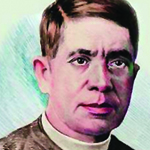
Este santo mexicano comparte su festividad con otros 21 sacerdotes y tres laicos martirizados entre 1915 y 1937, cuando las autoridades mexicanas persiguieron a la Iglesia católica.
Muchos de estos mártires cristeros, canonizados en 2000, fueron torturados y ejecutados cuando fueron detenidos. El padre Magallanes, un pastor celoso en su estado natal de Jalisco, también realizó labores misioneras entre los indígenas huicholes. Antes de que les dispararan, le dijo a su compañero sacerdote: «Ten paz, hijo mío; solo será un momento, luego estarás en el cielo».
San Cristóbal Magallanes Jara y sus compañeros son los santos patronos de los cristianos perseguidos.
San Josemaría Escrivá de Balaguer, festividad: 26 de junio
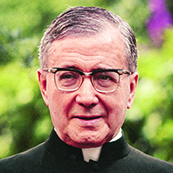
Nacido en Barbastro, España, en 1902, Josemaría Escrivá fue ordenado sacerdote en 1925. En 1928 fundó el Opus Dei, que en latín significa «obra de Dios», como apostolado en las circunstancias ordinarias de la vida, especialmente el trabajo, centrándose en la llamada universal a la santidad. Incluye a laicos, sacerdotes y seminaristas.
Su publicación más conocida es «Camino», que vendió millones de ejemplares.
En 1975, monseñor Escrivá falleció a los 73 años en Roma, donde había vivido dirigiendo la organización internacional desde 1946. En 1982, el Opus Dei recibió el estatus de prelatura personal, equivalente a una diócesis no territorial. Su fundador fue beatificado en 1992 y canonizado en 2002 por el papa Juan Pablo II.
San Josemaría Escrivá es el patrón del Opus Dei y de las personas con diabetes.
Todas las fotos y descripciones son de CNS Saints.

